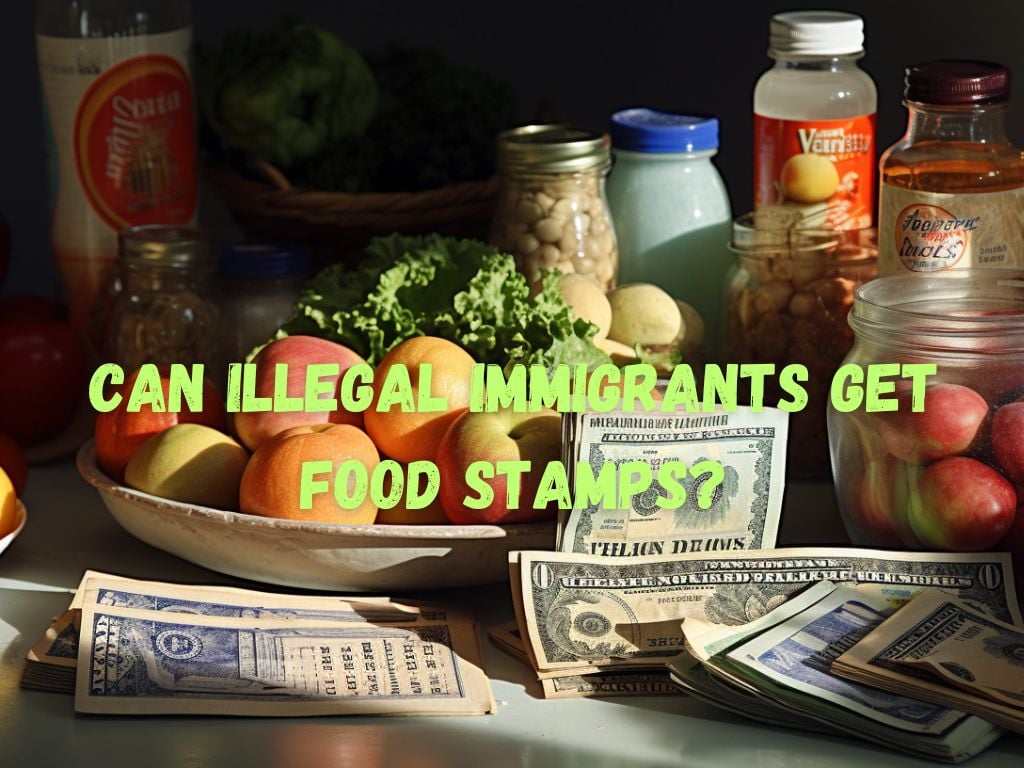An essential support mechanism for those in need, food aid, has sparked extensive debate from various quarters.
The discussion often centers around unauthorized immigrants’ rights and the broad question: Can illegal immigrants get food stamps or similar resources?
This article aims to explore, dissect, and provide clarity on this complex issue.
Food Stamp Eligibility Criteria
The conversation about food stamps begins with an understanding of the Supplemental Nutrition Assistance Program (SNAP).
SNAP, or food stamps as commonly known, serves as a lifeline for many. To qualify for SNAP benefits, a household must meet certain basic requirements. These are income-driven and vary by household size.
The benefits calculation considers both gross and net income, alongside assets, deductions, and employment requirements.
Other criteria be met. These include U.S. residency, having a Social Security number, and abiding by work regulations. The program may also consider an individual’s citizenship or immigrant status, with varying rules for U.S. citizens, legal immigrants, and unauthorized immigrants.

Can Illegal Immigrants Get Food Stamps? What’s the Current Status?
Tackling the question: Can unauthorized immigrants receive SNAP benefits?
The straightforward answer is no. SNAP regulations do not extend assistance to individuals who reside in the U.S. illegally. This restriction emanates from the federal regulations that strictly govern aid programs.
However, the picture becomes murkier when considering exceptions and specific scenarios.
Although undocumented adults are ineligible, what happens when their children are U.S. citizens?
Here, the policy is different. Children of unauthorized immigrants, being American citizens, can receive SNAP benefits – a critical factor in ensuring that these children, often in vulnerable situations, do not go hungry.
Can Legal Immigrants Get SNAP Benefits?
Yes, legal immigrants can become eligible for food stamps, but they need to fall into specific categories, such as refugees or asylum seekers.
Let us explain it in more detail.
General Eligibility
Legal non-citizens face a different set of rules for SNAP access. Similar to citizens, they must meet certain income, work, and residency conditions to qualify. However, additional guidelines pertain to the immigrant’s status and duration of residence in the U.S.
Legal Immigrant Categories
Some categories of immigrants are exempt from the usual waiting period.
For instance, refugees, asylees, trafficking victims, or those granted withholding of deportation/removal can access SNAP without any waiting period. Furthermore, veterans, military personnel, and their families are also not required to wait.

Five-Year Residency Requirement
There’s a standard five-year residency rule which necessitates most legal immigrants to be in the U.S. for five years before they can apply for SNAP.
However, the five-year condition does not apply to all. Exceptions include children under 18, refugees, asylees, and certain legal immigrant seniors (born on or before August 22, 1931, and legally residing in the U.S. on August 22, 1996).
Other Support Programs for Undocumented Immigrants
While SNAP benefits may be elusive for many unauthorized immigrants, other routes potentially offer food aid without inquiring about immigration status. One example is the Women, Infants, and Children (WIC) program.
WIC caters to the nutritional needs of the groups it is named after, providing electronic benefits used to buy specific food packages. It’s a valuable lifeline for many mothers and children, regardless of their immigration status.
Then, there are local food banks, providing food assistance to those who need it.
These entities seldom differentiate based on immigration status and serve as a vital resource for many immigrant families.
Additionally, various non-profit programs take on the responsibility of reaching out to those missed by larger systems, offering food aid without worrying about the beneficiaries’ legal status.
Immigrants might explore other pathways for help, such as accessing local resources and reaching out to community centers. Support is indeed available; one needs to know where to look.
Frequently Asked Questions
Ans:- Similar to SNAP, Medicaid is generally off-limits for illegal immigrants.

Ans:- Some states offer aid programs for immigrants regardless of their legal status. But these are not universal.
Ans:- SNAP’s federal regulations apply consistently across states. Therefore, no plans will provide food stamps to undocumented immigrants in these states either.
Conclusion
In conclusion, the eligibility for SNAP benefits for immigrants, particularly illegal ones, tends to be restrictive. It underlines the necessity for illegal immigrants to stay informed about their options.
They need to understand the governmental programs they are eligible for and identify other non-governmental resources that can offer a helping hand.


 Tags:
Tags:










